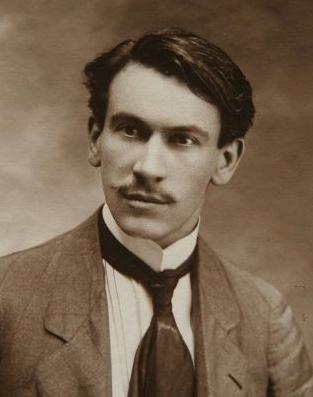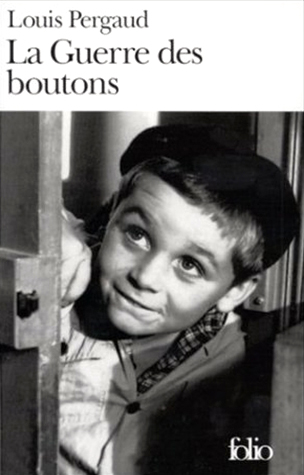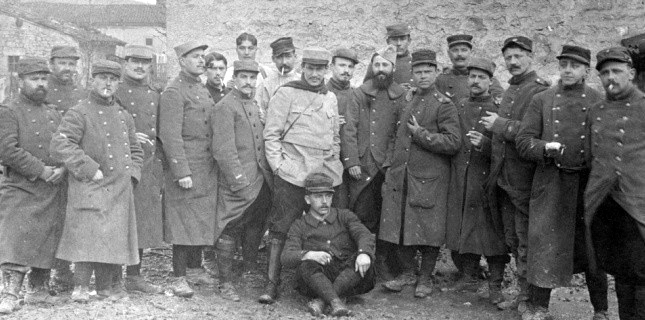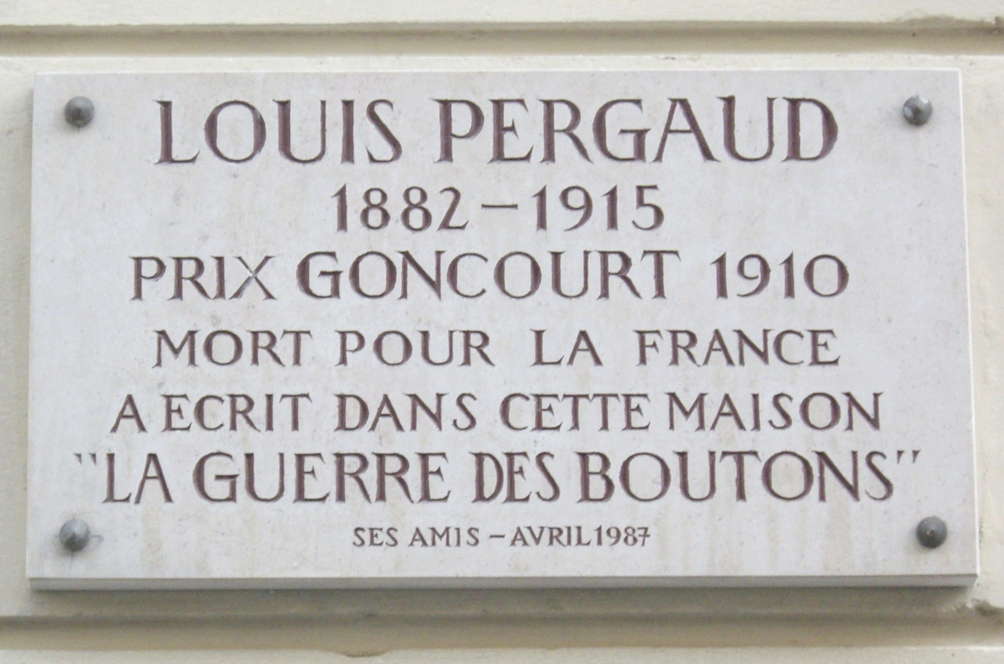Louis Pergaud

“Mort pour la France”
Louis Pergaud was born on 22 January 1882 in Belmont, in the Doubs department. Son of a lay schoolteacher, he spent his childhood in small villages, exploring the countryside and trout fishing with his buddies. A brilliant student, he was admitted to the École Normale in 1898 and was appointed schoolteacher at Durnes in October 1901. The death of his two parents in February and March of 1900 was a great shock to the young man, which he got over by reading the poems of Léon Deubel, inspiring his literary passion.
In 1902, he did his military service, which left him with bad memories; his marriage to Marthe Caffot in 1903 was a failure and his daughter died in 1904. At the same time, his militant Republicanism caused him some problems with the population, leading to his transfer to Landresse at a time when the relations between the Church and Republican schools were extremely tense. Louis Pergaud was dissatisfied with life and withdrew into hunting and walking, awaking the scents of his childhood, and discussions with friends, including the extravagant café owner, Duboz. He soon fell in love with one of his daughters, Delphine. Léon Deubel, who had helped him get his first collection of poems published in 1904, asked him to come and join him in Paris.
Pergaud decided to change his life. He moved to the capital in 1907 and had Delphine join him and he married her after his divorce. Léon Deubel supported him in his desire to write. To make a living, he went back to his profession of schoolteacher and during his holidays he gathered material for his works. Louis Pergaud immediately became a figure in the literary world: he received the Prix Goncourt in 1910 for his first book, De Goupil à Margot, which met with great success.
In 1912, he published The War of the Buttons, the novel of my twelfth year. On the backdrop of the rivalries between two villages, the author uses sometimes fierce humour to develop subjects that were dear to him: country life, parochialism, the quarrels between the church and the secular state, etc. For Pergaud, 1913 was a happy period with the success of his novel Miraut the Hunting Dog, but it was also painful due to Léon Deubel’s suicide.

A naturalist writer, Pergaud used rich, dense writing to create a hymn to life that is still wild, with an innovative side in seeking out empathy with animals. He revisited his rural world, preparing several texts that he sent to Mercure de France in the spring of 1914 under the title Les rustiques. The book had not yet been published when Louis Pergaud was mobilised. War broke out on 2 September. With recruitment roll number 2216 in Belfort, he was assigned as a sergeant to the 166th Infantry Regiment at Verdun. “A pacifist and antimilitarist, I did not want the Kaiser’s boot more than any other boot rammed onto my country.” (1)
He reached the front in October, in the Woëvre sector of the Meuse, a damp region whose hills saw fierce fighting. His correspondence deplored "bedroom patriots", describing the courage of the "poilus" – the French soldiers – the mud in the trenches and ever-present death. The childhood fights between the Lebrac gang and the Aztec gang of Les Gués, the heroes of The War of the Buttons, took on the mortal dimension of an adult conflict.

Second lieutenant Louis Pergaud (centre).
In the spring of 1915, the French launched an offensive in the Hauts de Meuse. During the night of 7 April, Second Lieutenant Pergaud’s company set out from Fresnes-en-Woëvre, attacking hill 233 in the direction of Marchéville. Near the enemy trenches, under the pouring rain, the soldiers met with intense gunfire. Louis Pergaud’s section was decimated, the survivors hid and then withdrew in the early morning. No one ever saw the writer again. Some of the men said he was wounded. German stretcher-bearers may have retrieved him and transported him to a trench while waiting to be able to evacuate him. But to take the Les Éparges Ridge, hill 233 had to be taken: the next day, the French artillery pounded the area, destroying the entire landscape, forever burying the men in this land, without distinction.
On 4 August 1921, a judgement by the court of the Seine, Louis Pergaud, who had disappeared, was declared “Mort pour la France” (Dead for France) on 8 April 1915 at Fresnes-en-Woëvre. He was one of the 1,160 soldiers who died or disappeared from the 166th Infantry Regiment during the year 1915. There is no tomb, but his books carry on the memory of this writer and his broken destiny.


